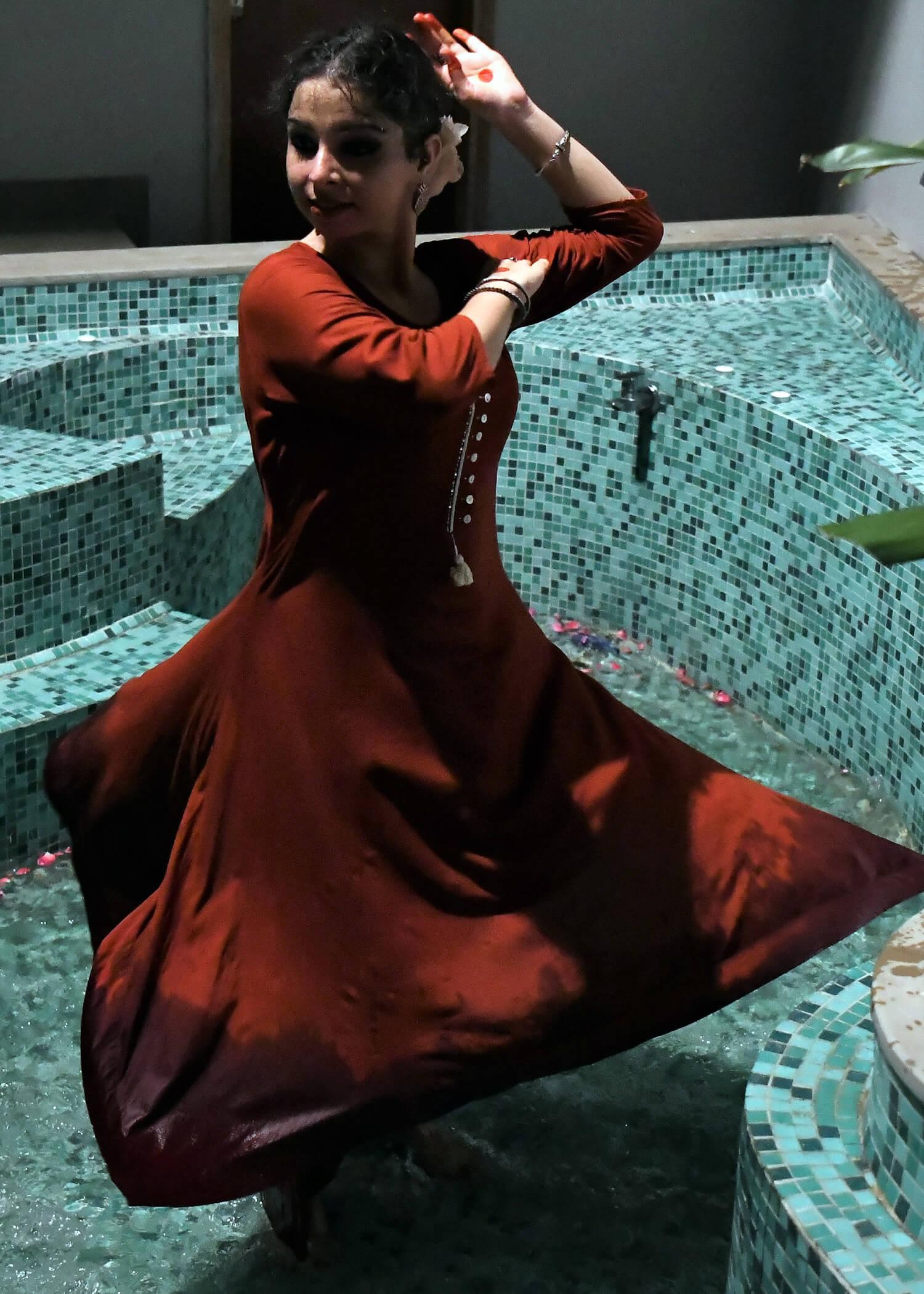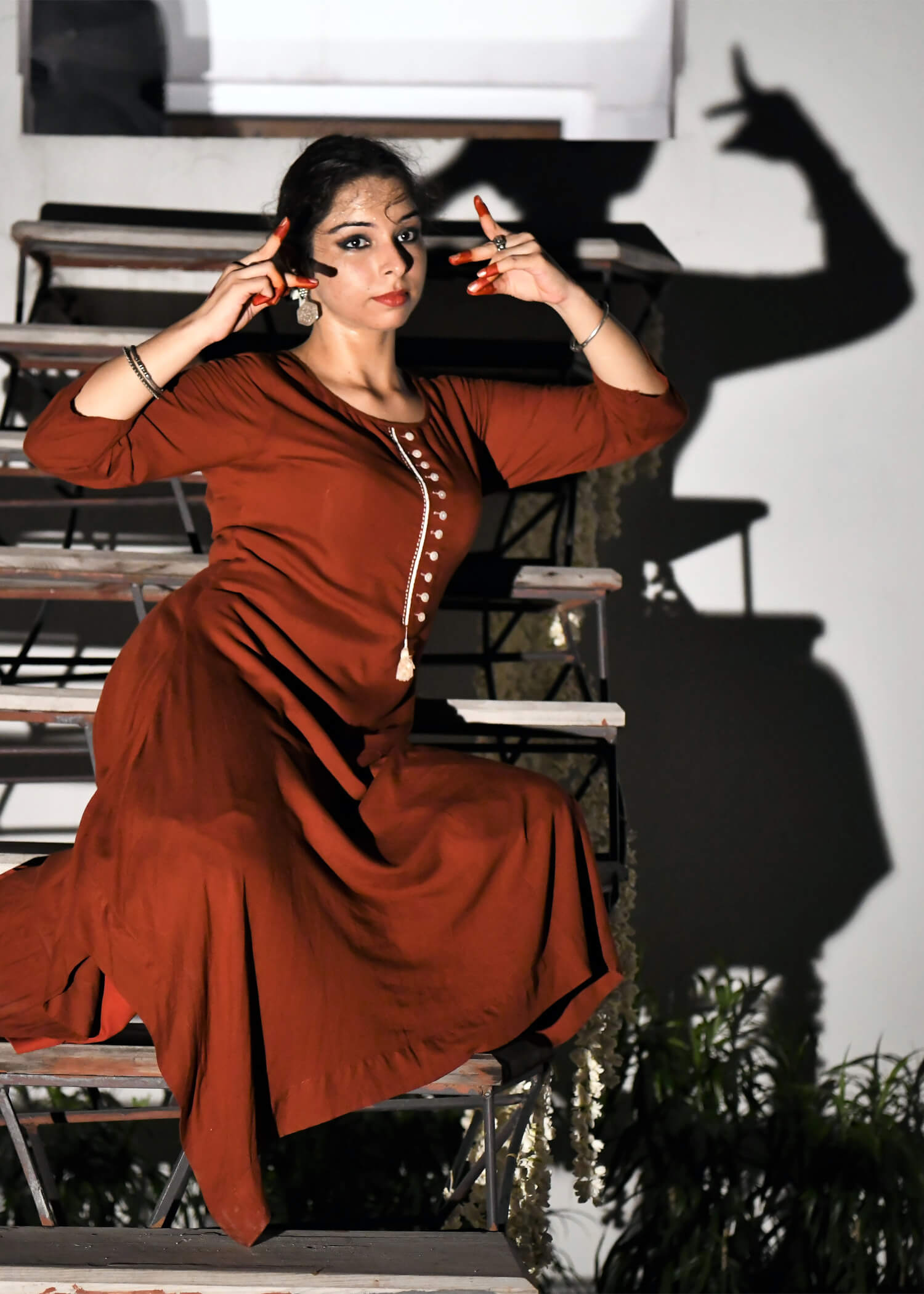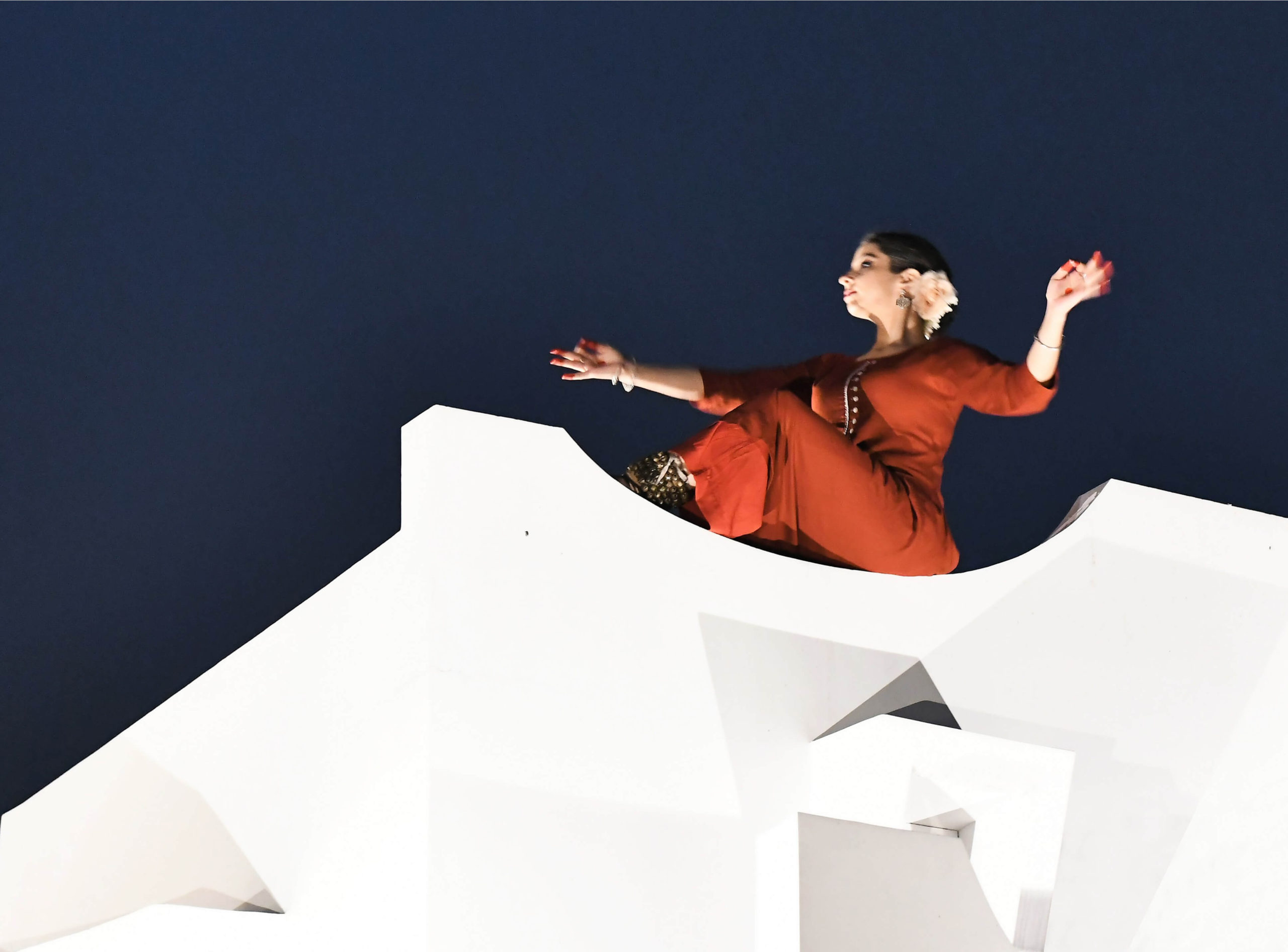Another Day will come22 SEPTEMBER 2018
Another Day will come
The performance was based on poems of Akka Mahadevi, Rabiya Basri and Mahmoud Darwish, it is a poetic composition of love so strong that it anticipates a world which can love like a woman, like Akka and Rabiyah, so assuredly and so completely.
Akka Mahadevi as it is well known roamed the mainland to the mountains in search of Shiva, her Channamallikarjuna the jasmine tender, after refusing a wedded husband. Her spiritual practice is a site for utter feminine love yet becoming free by transvestism and androgyny. Through poet Bhasavana’s records of her vachana, she says:
Look here, dear fellows:
Wearing Mallikarjuna’s light, you fool,
Where is the need to cover and jewel?
Rabiyah Basri, born in 717 CE, on the other hand is considered one of the first female Sufis of Islam who propagated Ishq-e-Haqiqui, the only True Love. She emanates a strong light of faith in Allah, even though some accounts (like the Malay version in Hiqayat-e-Rabiyah) believe that she married men of the world even though never deviating from her one true ibaadat. She is said to have outwit men of intellect and power by her knowledge and divine beauty. Absolving her own desires for worldly love and attachments she remained with as little as possible.
Rabiyah famously ridiculed the binaries of hell and heaven in evaluating human deeds and morals. Mahmoud Darwish born in 1941 was as poet and author who was regarded as the Palestinian national poet. He has been described as incarnating and reflecting the tradition of the political poet in Islam, the man of action whose action is poetry. He fought rigorously for the cause of Palestinian liberation.
His poem Another Day Will Come brings to the performance a resounding and culminating affect to the poetic cadence of Akka Mahadevi and Rabiyah Basri. The poem reverberates with the same love of these women.
The performance emulates a journey undertaken, and it traverses from the architectural binaries of heights and depths, often allowing the visitor to alter his vantage perspective, metaphorically even.
There is a journey undertaken, and it traverses from the architectural binaries of heights and depths, often allowing the visitor to alter his vantage perspective, metaphorically even.
The evening marks Autumn Equinox, a good day to talk of love.
The performing artist were as follows:
Zooni Tickoo hails from Kashmir and learnt Kathak dance at Kathak Kendra under the tutelage of Pt Krishan Mohan Mishra of Lucknow Gharnana. After having toured the country with renowned choreographers like Smt Geetanjali Lal, Pt Rajinder Gangani, she has been able to explore and experiment with visual artists like Raqs Media Collective at NGMA and JNU. She is currently part of the curatorial team of Kiran Nadar Museum of Art, New Delhi.
Dinesh Parihar hails from Jaipur Gharana of Kathak dancers and musicians. He was initially trained by his father and guru Shri Dilip Parihar and later by Shri Guru Ravi Shankar Upadhyay. He has been performing with renowned choreographers like Pt Rajinder Gangani and Padamshree Shovna Narayan. He is a running repertory member of Asavari Repertory of Smt Shovna Narayan. He is keen on establishing himself as a singer and rhythmist.
Malan Thow hails from Manipur, is a guitarist, vocalist and teacher for the last decade based in Delhi. His forte is pop, rock and metal music. He has held various gigs at various venues all over Delhi and India.





